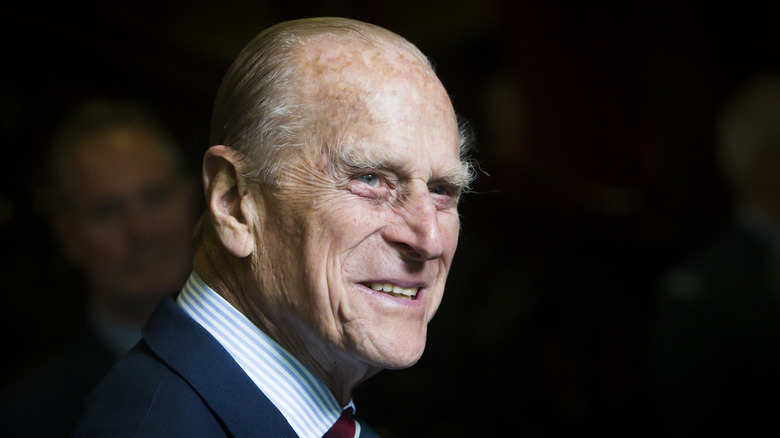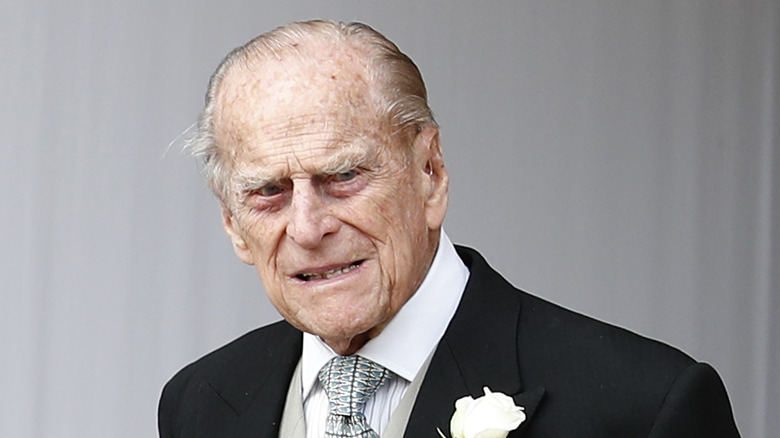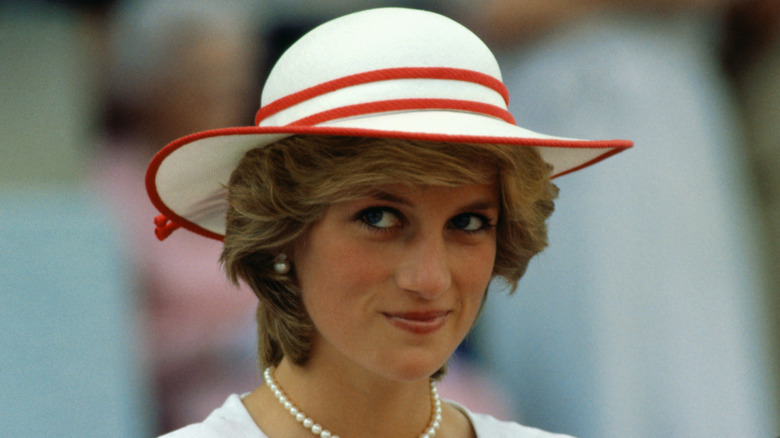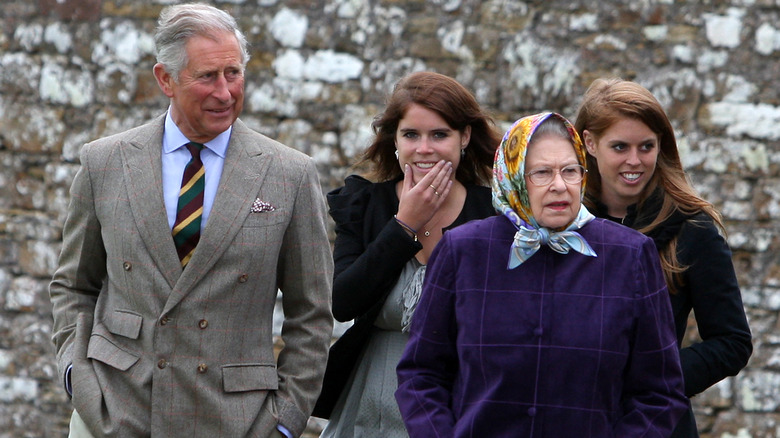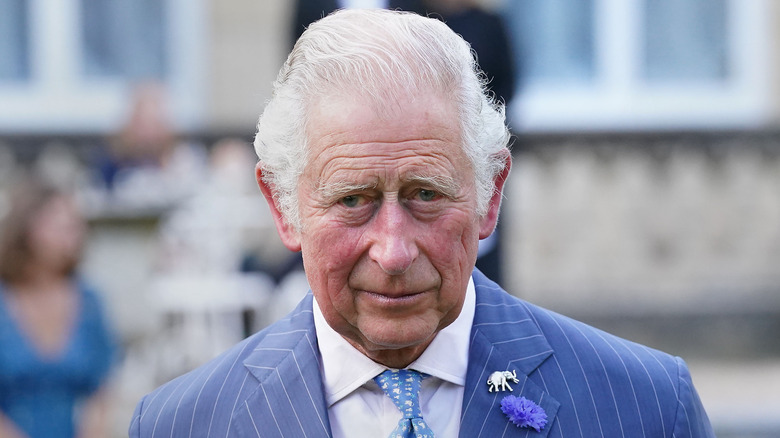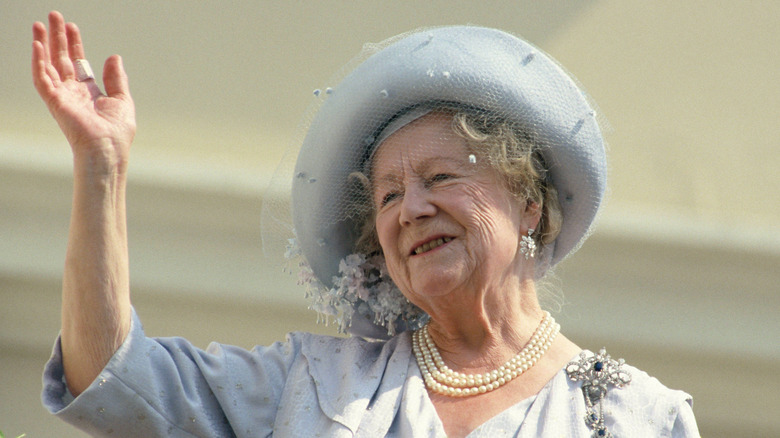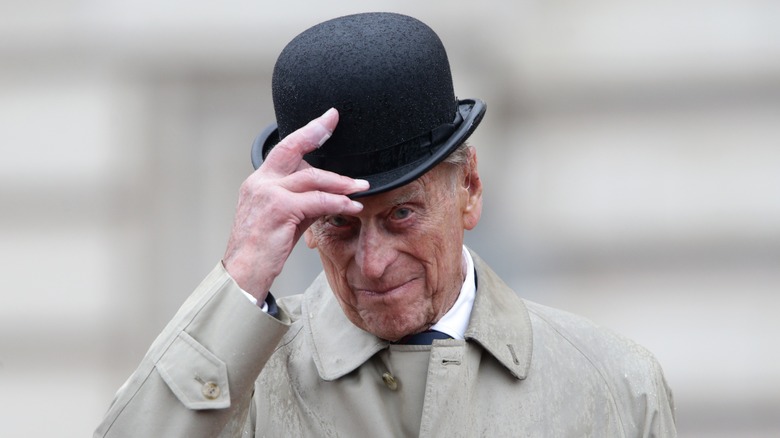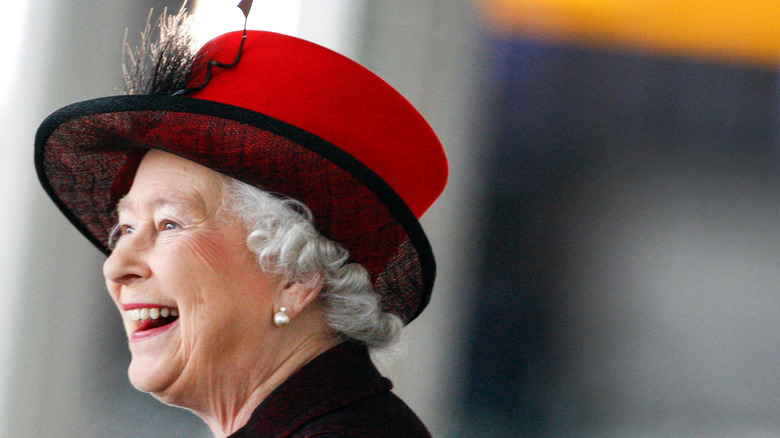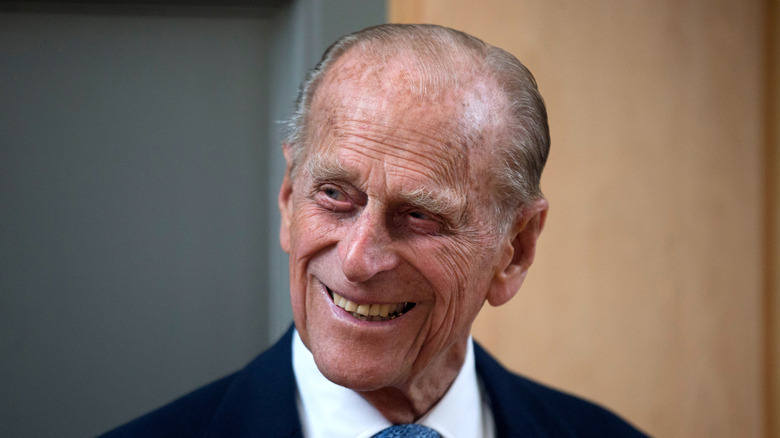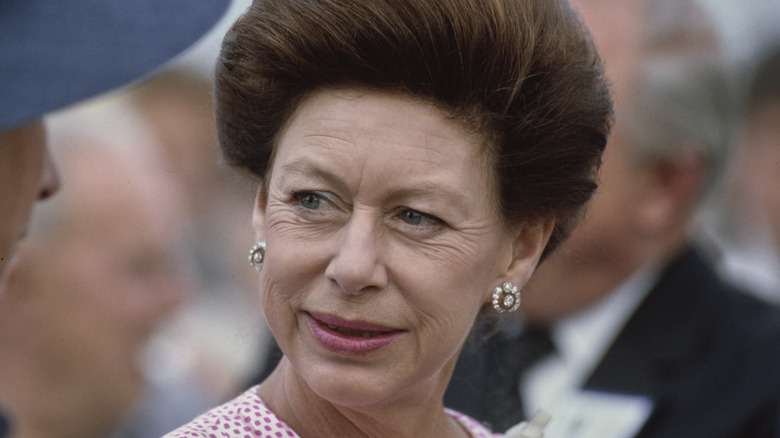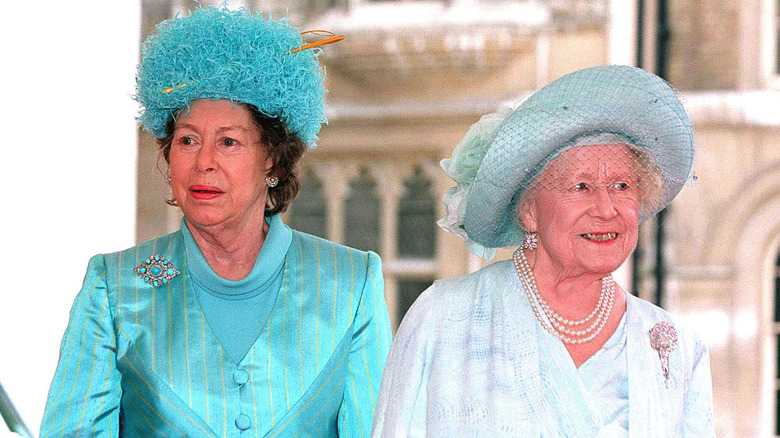Royal Wills Are A Lot More Complex Than We Realized
If you know anything about the royal family, you know their lives are vastly different from those of regular citizens. Even if you don't know anything about the royal family, you can probably still draw that conclusion. In some ways, the Windsors have it much easier than most. They have access to some of the best food, clothing, and healthcare in the world. They're able to travel, meet interesting people, and attend incredible events with regularity. They've also got lots and lots of money. And while all that money does come with unbelievable privilege, it also carries some weight.
We're not here to suggest you have sympathy for the royal family because of their wealth — we're only here today to get into one unique aspect of the Windsors' lives that is a direct result of their massive fortune: royal wills. For most people, a will is simply a formality used to ensure their wishes are followed after they've died. For the ultra-wealthy, it's an important document that can alter lives and family dynamics within minutes. For the royals, wills are so much more.
Royal wills are an incredibly complex matter that has been shrouded in secrecy until very recently. After Prince Philip's death, royal wills were again brought to the attention of the public. While this did stir up some controversy, it also brought some much-needed clarity to an unusual issue. Here's everything you need to know about royal wills.
It's tradition for royal wills to be sealed for a long period of time
In Britain, it is the law of the land that upon one's death, that person's will (if they had one) is made public after it goes through probate. However, soon after Prince Philip died in 2021, it was announced that his will would not immediately be made public, but rather be sealed for 90 years. His royal will was not the first to stay sealed: Before Prince Philip, the most recent sealed royal wills were Princess Margaret's and the Queen Mother's. Following Philip's death, Sir Andrew McFarlane, President of the Family Division of the High Court, explained this protocol. "It is necessary to enhance the protection afforded to the private lives of this unique group of individuals, in order to protect the dignity and standing of the public role of the sovereign and other close members of her family," he said, per The Guardian.
Ninety years is quite a long time for a will to be sealed and certainly seems sufficient for protecting the privacy of the royal family, but that was not always the standard. Prior to Prince Philip's will, royal wills could be sealed indefinitely. When Prince Philip's will was brought before the courts in an effort to be sealed, the presiding judge ruled that each will is to be sealed for 90 years, though representation for Prince Philip did request a 125-year timeframe.
The royals have to request that their wills be sealed
As noted, most other British citizens' wills are made public if probate is granted. "All original wills and other documents which are under the control of the High Court in the Principal Registry or in any district probate registry ... and any wills or other documents so deposited shall, subject to the control of the High Court and to probate rules, be open to inspection," the law reads. The royal family, meanwhile, files a formal request with the courts. The representation for the deceased does have to make a case for why the will should be sealed. "The court must be persuaded that it would be 'undesirable or otherwise inappropriate' to make the will public," attorneys Geoff Kertesz and Judith Swinhoe-Standen told CNN.
"Historically, the courts have approved such applications only for senior members of the royal family. It is unclear under what, if any, other circumstances the court might agree to keep a will private," Kertesz and Swinhoe-Standen added. One notable example of a royal will not being kept private was Princess Diana's will. (She had given up Her Royal Highness title when she and King Charles III divorced, so her representation might not have been given permission to seal her will anyway.) Following her death, Diana's will was released to the public. According to Reuters (via Newsweek), an attorney for the estate stated, "the family had come to the conclusion that in view of the great public interest, this was the appropriate thing to do."
Not all royal wills are sealed
Being a distant member of the royal family comes with certain privileges, but having a sealed will is not one of them. Per The Guardian, an official explained, "The Buckingham Palace lawyers consider that except in special circumstances (for example, a will containing something that should not be made public) 'fringe' members of the royal family need not have their wills sealed. This should only be for HRHs [Royal Highnesses]." This means that cousins, aunts, uncles, and the like who are related to the royal family but aren't considered "working royals" or don't have the words Royal Highness in front of their name are subject to an unsealed will just like the rest of the country. Only senior members of the royal family retain this privilege.
While it does seem a bit petty to differentiate whose will should be sealed and whose shouldn't be based on seniority alone, the standard is set so that wills are only sealed when absolutely necessary. As David McCure told The Guardian, "If you were a royal of any European royal house you could, if you made enough of a song and dance about it, have your will sealed. It does slightly make a mockery of the whole process that this should be for more senior royals." That being said, most distant members of the royal family do not request to have their wills sealed.
The sovereign's will does not go through probate
When it comes to privilege, no one has more than the King or Queen of England. And we're not talking about the nominal kings and queens (Camilla, Queen Consort, for example — though she does have plenty of privilege). We're talking those whose title is a birthright, like the late Queen Elizabeth II and King Charles III. One such privilege they have as sovereign is that their will does not have to go through probate. As the law states: "Now the history of the wills of Sovereigns from Saxon times-from Alfred the Great down to the present day, has been diligently searched and examined, but no instance has been produced of probate having been taken of the will of any deceased Sovereign in these Courts, much less of its having been contested here against the reigning Sovereign."
When non-royal British citizens die, their wills are subject to probate, a process that determines what happens to one's assets. Typically, wills are used as a guide. But instead of going through the courts to validate the sovereign's will, it is automatically valid, meaning that the dissemination of the sovereign's assets is not overseen by the courts but rather handled privately. This same process is followed for wills that are sealed, but those wills, as noted, have to be approved by the courts.
Sir Andrew McFarlane has possession of the wills
Just because royal wills are sealed doesn't mean they can be taken back to Buckingham Palace and kept there. The wills are instead kept in the possession of Sir Andrew McFarlane, a High Court judge. McFarlane is given this duty because he is the most senior judge in the family courts in Britain. But not even McFarlane gets to read these wills. He just protects them. "I am now custodian of a safe in which there are over thirty envelopes, each of which purports to contain the sealed will of a deceased member of the Royal Family," he explained, as reported by People.
McFarlane did give the public some insight as to the contents of the safe, though, and published a list of the wills of which he has possession. "I can confirm that the earliest such envelope is labeled as containing the will of Prince Francis of Teck. The most recent additions were made in 2002 and are, respectively, the wills of Her late Majesty Queen Elizabeth, The Queen Mother and Her late Royal Highness Princess Margaret, Countess of Snowdon," the judge said. McFarlane, as well as his successors, will keep these wills in the safe until the set time has elapsed and they can be unsealed.
There's a special process for sealing and unsealing the wills
Until Prince Philip's death, there wasn't much written about the process of sealing and unsealing royal wills. "The practice of sealing up wills has been somewhat haphazard," observed one official, as reported by The Guardian. But in 2021, Sir Andrew McFarlane provided some clarity and structure regarding the sealing and unsealing of royal wills, and now there is a process that is to be followed in this event. According to the Courts and Tribunals Judiciary website, the sealed wills must be properly stored, and that applies to the envelope in which it's placed, as well as the location.
After 90 years, all necessary parties will be notified that it's time to unseal the will. The unsealing will not be a public matter, though. Only specific people are allowed to be at the unsealing, including the President of the Family Division, His Majesty's Attorney General, and personal representatives. If those people are unavailable to attend, they can request others go in their place. At the unsealing, a professional archivist is responsible for the physical act of unsealing in order to preserve the document. And while no copies are to be made, attendees are allowed to make notes regarding the will's contents, though those must be kept confidential. Once unsealed, necessary parties can be contacted to learn of the contents, and then said necessary parties will decide whether the will should be made public.
Queen Elizabeth's will probably won't be made public
After Prince Philip's death in 2021, the public learned about the process followed concerning the sealing and unsealing of royal wills, but there is still one royal will that does not adhere to those rules: the sovereign's. While all other sealed royal wills will remain so sealed for 90 years, they will be unsealed after that timeframe and potentially be made public. The sovereign's will, as noted, does not need to be validated by the courts, and therefore it is not subject to the sealing and unsealing process either. This means that we will likely never know the contents of Queen Elizabeth II's will, as well as King Charles III's. However, if the sovereign so chooses, the contents of their will can be made public.
While unlikely, it's not totally out of the question that Queen Elizabeth's will may someday be made public. Though not a sovereign, the contents of the Queen Mother's will were published by the royal family, proving that they do sometimes make typically private information public. Still, the public isn't totally in the dark about what Queen Elizabeth left behind and for whom she left it. King Charles reportedly inherited all of the late queen's estate, while Princess Catherine reportedly inherited most of her jewels.
The media is not allowed to attend royal will hearings
Since the first royal will was sealed, the hearings in which representation requests for a royal family member's will to be sealed have been held in private. In 2021, after Prince Philip's will was also granted permission to be sealed in a private hearing, The Guardian brought forth a lawsuit claiming that members of the media should be allowed to attend these hearings. Per CNN, a representative of the outlet declared that making these decisions in private hearings "is a clear threat to the principles of open justice." The representative added, "We are seeking permission to argue that the behaviour of the high court in this instance constitutes a failure of open justice and that the case should be reheard."
The Guardian argued that judge Sir Andrew McFarlane did not act in accordance with the law when he held this private hearing. Representatives for the royal family said in response, "Accordingly it cannot be said that [McFarlane] made an error of law purely and simply because no media representatives were heard before a decision was taken to hear the matter in private," as reported by The Guardian. The royal family representatives also pointed out that the attorney general was present as a representative of the public interest. The Guardian's appeal was later rejected, and as it stands today, the media is not allowed to attend hearings that request the sealing of a royal will.
Over 30 royal wills have been sealed
We've noted that the sealing of royal wills is a long-standing practice, but just how long-standing is it? The first instance of a royal will being sealed dates back to 1910. "It was Queen Mary who used these unusual royal powers and prerogatives never used before," Michael L. Nash, a legal and royal expert, said to CNN. Queen Mary requested that the will of Prince Francis of Teck be sealed, reportedly because she wanted to protect her brother's reputation. Evidently, his finances weren't exactly in order at the time of his death. "Queen Mary knew that the creditors, once they saw the will, would descend and everything that Frank died possessed of would have to be sold in order to satisfy these massive debts," Nash said. "And she was absolutely mortified that the public would be able to know about the state that her brother had got himself into."
Since that first occurrence, over 30 royal wills have been sealed. However, unlike Prince Francis, most of the royals who subsequently had their wills sealed were apparently not in danger of being pursued by their creditors, but rather had large sums of money to their names when they died. Among the wealthiest (aside from Prince Philip and Queen Elizabeth) were Alexander William George, Duke of Fife, who would reportedly be worth around $100 million today; Princess Margaret, who would be worth over $14 million; and Princess Victoria Alexandra Olga Mary, who would be worth about the same as Princess Margaret.
Royal wills are sometimes unsealed for specific purposes
On occasion, royal wills are unsealed for incredibly specific purposes, but this practice is incredibly rare, and it must be permitted by the courts. In order to be granted permission, those seeking to unseal the will must appear before a judge and plead their case. In the past couple of decades, only a few have attempted to have royal wills unsealed, and the attempts have mostly been unsuccessful.
In 2007, a man attempted to have the Queen Mother and Princess Margaret's wills unsealed, purporting himself to be the child of Princess Margaret. Similarly, in 2017, a woman claiming to be Princess Margaret's daughter requested to the courts that the royal's will be unsealed. Neither attempt was successful, and the judge presiding over the latter case dubbed it "a farrago of delusional nonsense," adding, "I think I am right in saying it is the shortest judgment I have ever delivered," as reported by the Daily Mail.
As The Telegraph reported at the time, a successful attempt to have a royal will unsealed came in 2017 when the Librarian and Assistant Keeper of the Queen's Archives was granted permission to look at King Edward VIII's will to resolve a copyright issue related to "The Crown." While the librarian was able to look at King Edward VIII's will, he had to follow a specific procedure when working with the document, and he was not able to share any information with the public.
